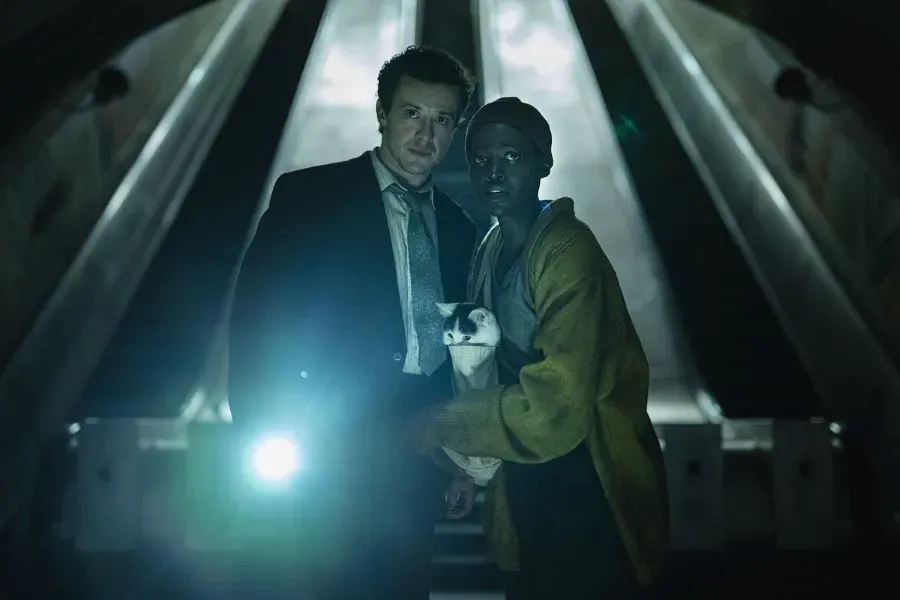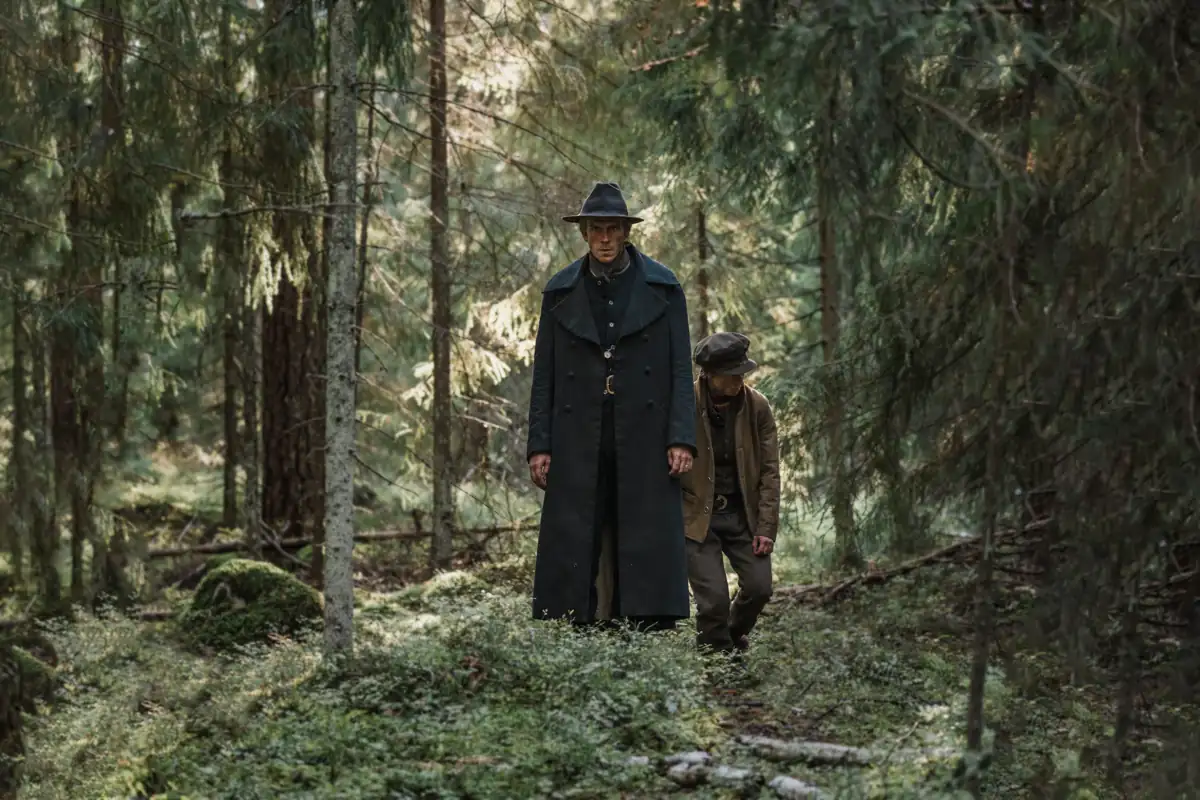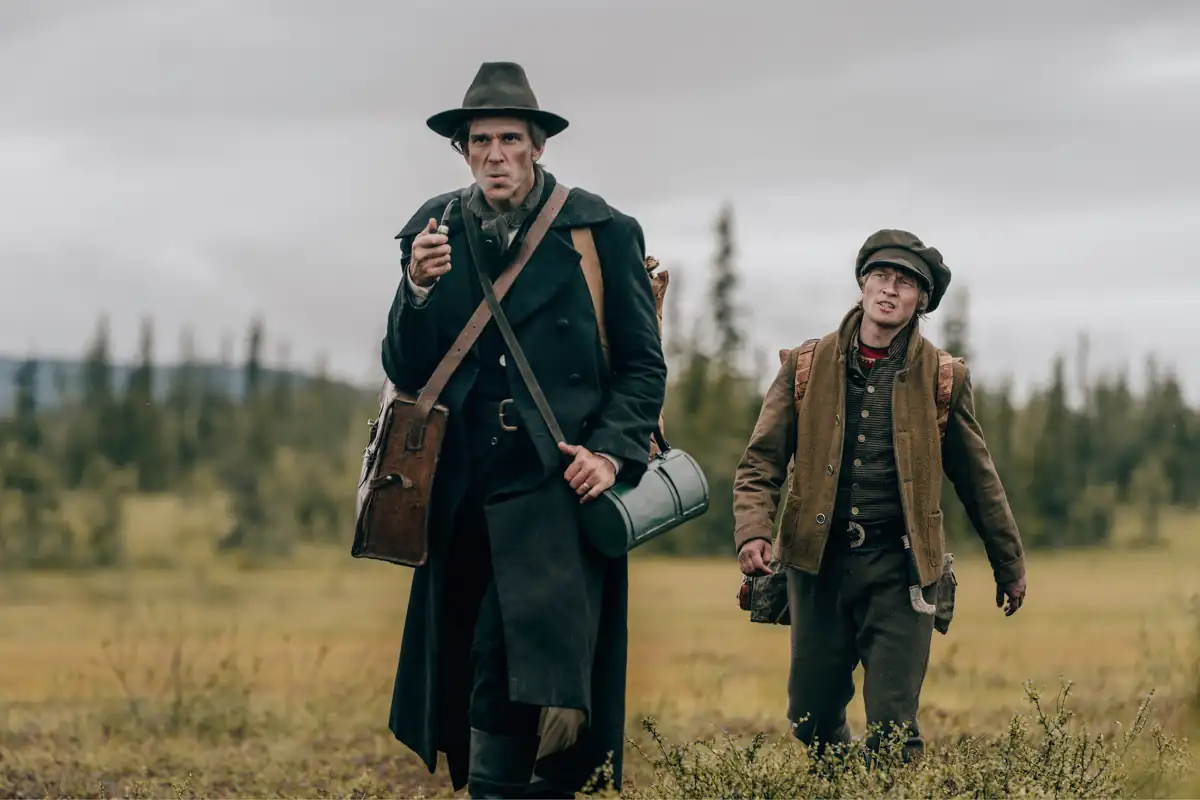Every horror film requires a level of suspension of disbelief. They come with rules, which in turn are driven more by emotion than logic. The house is haunted, the shark hunts the hunters, and so on. We ignore reality because we’re invested in the characters, even if they have to put themselves in dangerous scenarios for the films to offer their promised thrills.
The first A Quiet Place did not succeed in winning me over. I could not quiet my mind about the rules and the contrivances, mainly because I didn’t feel anything for the characters. I kept asking questions when I should have engaged emotionally with the material. The disconnect made the experience miserable.
Day One is a different beast. I still shook my head multiple times at how outrageous the setup is, and how some of the twists rely on magic to solve themselves. But more than that, I engaged with the characters. I wept for Lupita Nyong’o’s plight. I hoped that Joseph Quinn could conquer his fears. Most of all, I gripped my chair every time Frodo the cat was in peril. It’s a cheap trick to put cute animals in danger, but damn if it doesn’t work.
The plot is threadbare and minimalist. We witness the end of the world from the point of view of two survivors, both seeking salvation in one way or another. For 100 minutes, we suffer alongside them as New York is devastated by an alien invasion.
Why Day One succeeds when the original film didn’t is down to immediacy. Day One is precisely what the name promises — the beginning of the end. Because we establish only the bare minimum of rules, we are free to enjoy the story without extra baggage. Sure, it’s still silly that only some noises mean instant death while others, equally loud ones, are just fine. But director Michael Sarnoski understands that it isn’t so much about the big scares — though there are plenty of those — it’s more important that we feel the devastation in the quiet moments instead. The times when the characters can breathe and realize just how much has been lost.
One of these scenes is the highlight of the film. Nyong’o and Quinn wait out a thunderstorm in her old apartment. Her life was already in tatters before the apocalypse, yet we get the sense she never had time to properly grieve for it. Now, bonded by their shared loss, the two howl in pain against thunderclaps. The only moments of respite when they can vocalize their pain.
It’s a stunning and heartbreaking moment that sets the tone for everything that comes after. The end of the world is immediate and brutal, and Sarnoski never eases the throttle once the story kicks in.
Nyong’o and Quinn are stellar in their parts, both carrying the picture with expressive and soulful faces that express more than trite dialogue could. Nyong’o in particular reminds me of Renée Jeanne Falconetti with her superlative silent performance. This is a person who has already given up, and now fights against the end of everything out of both instinct and spite. In lesser hands, it would become a one-note performance of furrowed eyebrows and gritted teeth. Nyong’o takes us on a personal journey that, by the end, allows us to collective grieve in the process.
Best of all, Day One is precisely as long as it needs to be, and ends just as we think to ask for more. Sarnoski keeps the set pieces limited, so when they happen they feel special and dangerous. I haven’t felt this engaged with a depiction of the apocalypse in years. In such uncertain times, the greatest compliment I can give Day One is that it allowed me to process my own anxieties about the world through the power of cinema. I shivered, I wept, and I went on a journey. It was only after that I realized how silly it was in places.
That’s an accomplishment all on its own.













